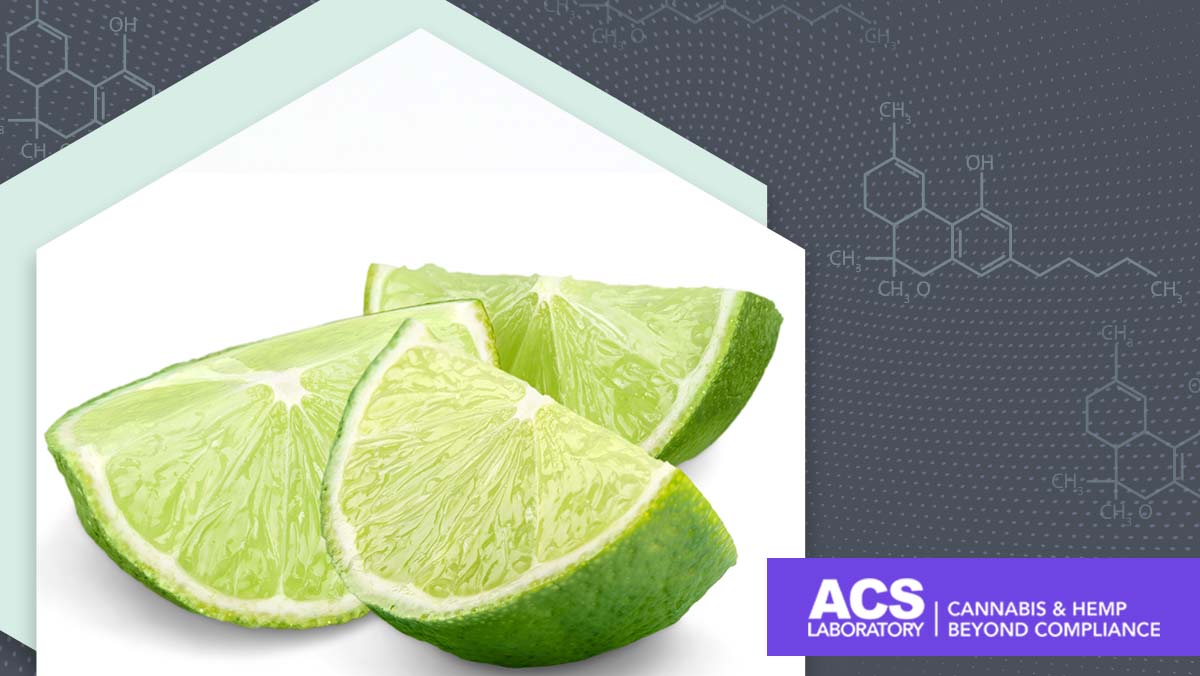Terpene Tuesdays: Everything You Need to Know About Caryophyllene Flavor, Fragrance, and Health Benefits
Terpene Tuesdays: Everything You Need to Know About Caryophyllene Flavor, Fragrance, and Health Benefits
Why does freshly cracked pepper bring a tear to your eye? Why does clove oil have a musky odor? And what exactly gives cinnamon its spicy kick? You’re looking at (or rather, smelling) caryophyllene.
Pronounced “carry-off-fi-leen’, this terpene has serious range. Abundant in nature, caryophyllene can show up smelling musky and spicy or earthy and sweet. You likely consume caryophyllene without even realizing it in black pepper as well as cinnamon, cloves, and oregano.
Caryophyllene is unique because it’s the only terpene that also acts as a dietary cannabinoid. That means it activates our endocannabinoid system, binding with CB2 receptors. This activation is responsible for its reputation as a pain reliever, but this terpene has a variety of other medicinal benefits, ranging from better sleep to protecting our brain and even extending our lives!
In this guide, you’ll find everything you need to know about the wellness benefits of caryophyllene, the variations you may encounter, and how it affects your favorite cannabis strains.
What Do Terpenes Like Caryophyllene Do?
Terpenes are chemical compounds that occur naturally in plants. The aromatic compounds of terpenes help plants attract bees and other pollinators while fending off predators and pests. There are tens of thousands of terpenes throughout nature and over 150 identified terpenes in cannabis.
Each cannabis strain has a unique terpene profile, depending on how it was grown. The terpene profile of strains can vary between growers as well. Terpenes work in tandem with cannabinoids like THC to produce the specific effects we associate with cannabis.
Types of Caryophyllene
Caryophyllene is a unique terpene in several ways; the molecular structure has three isoprene units, making it bigger than other terpenes, which only have two. It also contains a cyclobutane ring, where the shape of the cyclobutane compound is twisted.
Cyclobutane rings are rare due to torsional strain (resistance to twisting) and aren’t present in other cannabis terpenes. Finally, caryophyllene can appear in a few different ways.
- Beta-Caryophyllene
The most common appearance of caryophyllene in cannabis and food is beta-caryophyllene, also called b caryophyllene or simply caryophyllene. This terpene is the dietary cannabinoid that binds directly with your CB2 receptor.
- Caryophyllene Oxide
Caryophyllene oxide is a sesquiterpene or a terpene that results from the oxidation of beta-caryophyllene. Also known as beta-caryophyllene oxide, this terpene is the aromatic component drug dogs smell to identify cannabis. It’s naturally present in plants like lemon, oregano, and eucalyptus and is a common food flavoring.
- Trans Caryophyllene
Trans caryophyllene is another sesquiterpene that often appears in conjunction with beta-caryophyllene. It has similar medicinal properties to other terpenes but does not activate the endocannabinoid system.


Caryophyllene Terpenes and the Entourage Effect
Terpenes and cannabinoids work better together. The entourage effect explains how cannabinoids and terpenes work in tandem to create unique effects in your system.
In the past, extracting singular cannabinoids like THC was thought to be the best way to get the most targeted medicinal benefits. But ongoing research has proven the opposite to be true- the combination of compounds, known as the entourage effect, is responsible for many of the healing powers once attributed to singular cannabinoids.
That means the sum of the cannabis plant is greater than the value of its parts. Consuming full-spectrum cannabis is the best way to enjoy the most of what this plant has to offer.
As the only terpene to interact with our system as a cannabinoid, caryophyllene plays a major role in the entourage effect. While THC binds with your CB1 receptor, caryophyllene binds with CB2. CB2 activation is known to mitigate some of the less desirable effects of THC, like anxiety and paranoia.
Caryophyllene Research
- Beta-caryophyllene has strong anti-inflammatory properties. It can also strengthen the effectiveness of pain medication like morphine.
- Beta-caryophyllene and caryophyllene oxide have anti-cancer and pain-relieving properties, with strong potential to support traditional cancer treatments.
- Caryophyllene and caryophyllene oxide may improve sleep quality, decrease body temperature and increase cold tolerance, as found in a 2012 study on mice.
- Beta-caryophyllene provided pain relief from capsaicin exposure (the active ingredient in hot peppers) by activating CB2 receptors to stimulate endorphin release in animal studies.
- Beta-caryophyllene may be a lifespan extender due to its regulatory effect on mRNA genes regulating oxidative stress, longevity, and drug breakdown in the body.
Do Terpenes Like Caryophyllene Get You High?
No, isolated terpenes cannot get you high. But they are essential to the entourage effect we mentioned earlier. Caryophyllene interacts with THC, CBD, and CBG to create a unique experience and is common in commercially grown cannabis strains. This terpene is essential to the entourage effect due to its unique impact on our systems.
For example, adding caryophyllene to your CBD regimen can increase the efficacy of CBD, allowing your body to better absorb the CBD with smaller doses. Caryophyllene also increases the anti-inflammatory properties of THC while activating your CB2 receptor for a more balanced high.
Sources of Caryophyllene
Even if you’ve never heard of caryophyllene, chances are you’ve eaten it without realizing it! Caryophyllene is a dietary cannabinoid, so consumption activates our endocannabinoid system even without cannabis present.
Here are a few familiar dietary sources of caryophyllene:
- Black pepper and cinnamon are the two best-known spices for caryophyllene, but you can also find it throughout your garden in basil, oregano, lavender, and rosemary.
- Many essential oils contain caryophyllene, including clove oil, copaiba oil, ylang-ylang, and black caraway oil.
- Caryophyllene has preservative properties and is present in hops used to make beer, vodka, and whiskey.
- Caryophyllene is used in chewing gum to enhance citrus or spicy flavors.
- Beta-caryophyllene is a common additive to skincare products, thanks to its powerful antioxidant properties.
Which Cannabis Strains Have the Most Caryophyllene?
The nose knows how to find strains with caryophyllene. These strains tend to have intense aromas of diesel, jet fuel, or a general muskiness. Caryophyllene-dominant strains include:
- Skywalker OG. This hybrid strain originated in California and has a strong earthy or diesel aroma. It delivers a euphoric and sometimes sleepy high, perfect for ending your day.
- Bubba Kush. This incredibly popular, indica-dominant strain has a spicy, often woodsy scent and delivers an intense, uplifting high that will leave you relaxed and giggling.
- Candyland. This golden-haired sativa strain offers an energizing, mood-lifting experience and works well for controlling pain or muscle tension.
- Death Star. The skunky love child of Sensi Star and Sour Diesel is unmissable, with a pungent aroma of jet fuel and a slow-starting high that will sweep you off your feet. Ideal for nighttime use.
- Chemdawg. This hall-of-fame strain has a strong aroma of diesel matched by the strength of the high. A smoke sesh with Chemdawg delivers a cerebral experience and a heavy body high, perfect for forgetting your worries.
- Cookies and Cream. The aptly named sweet hybrid provides long-lasting relief for daily dosing, but a strong hit may have you taking a nap. Cookies and Cream won the hybrid category of the 2014 Denver Cannabis Cup.
- Gelato. Also known as “Larry Bird,” Gelato owes its sweet taste to a blend of Sunset Sherbet and Thin Mint GCS. This THC powerhouse provides a strong, euphoric high and pain relief.
Reported Caryophyllene Benefits
- Reduce Chronic Inflammation. One study conducted in 2011 found that administering beta-caryophyllene to mice with colitis reduced weight loss and colon inflammation.
- Provide Pain Relief. A 2014 animal study showed beta-caryophyllene reduced spinal inflammatory pain levels and lowered temperature sensitivity.
- Regulate Blood Sugar. A 2014 animal study found that beta-caryophyllene used with standard diabetes medicine can normalize metabolic enzymes by balancing glucose levels and increasing plasma insulin.
- Reduce Anxiety: This 2014 animal study found beta-caryophyllene worked with CB2 receptors to improve depressive symptoms and decrease compulsive behaviors.
- Brain Health
- A 2016 study found beta-caryophyllene reduced oxidative stress, restored antioxidant enzymes, and protected dopamine neurons in rats with Parkinson’s Disease.
- A 2014 animal study showed beta-caryophyllene prevented cognitive impairment and reduced beta-amyloid peptide levels (a marker of Alzheimer’s) throughout the brain.
The Bottom Line
Caryophyllene is an abundant terpene in today’s cannabis strains, and its unique properties make it an essential part of your diet and cannabis. It offers relief from chronic pain and inflammation, as well as antioxidant and potentially life-extending properties. While caryophyllene is not uncommon in cannabis, you should check the Certificate of Analysis (COA) to confirm its presence before buying a product.
Every single cannabis product you buy should have a COA from a verified testing laboratory. All COAs list the cannabinoid contents and safety information, but the best brands go further to include the terpene profile as well.
Understanding the cannabinoid and terpene profiles of your cannabis strains and products allows you to develop a deeper awareness of how it affects you. Ask your budtender about which brands test for terpenes to find a product that fits your specific needs









.png)
.png)
.png)
.png)
.png)